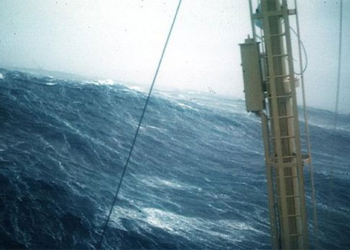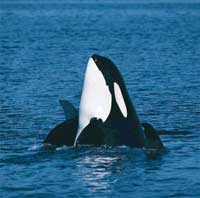Images of tens of thousands of beluga whales swimming in the Arctic waters were shared by the research vessel Delphi on July 15, accompanied by a message to protect the ecosystem and sea ice.
A pod of beluga whales swimming on the surface of Hudson Bay. (Video: Polar Bears International)
The latest footage is the result of a collaboration between the non-profit organization Polar Bears International, which focuses on Arctic conservation, and explore.org. Their goal is to raise community awareness about sea ice and its importance to the Arctic ecosystem.
The live-streaming camera captures the annual migration of 55,000 beluga whales to the shallow waters of Hudson Bay. According to Stephen Petersen, the Conservation and Research Director at Assiniboine Park Conservancy in Canada, this bay is ice-covered in winter, forcing beluga whales (Delphinapterus leucas) to swim northward to areas with larger expanses of open water. However, in summer, the whales return. They can detect the ice-covered waters in the bay, which provide protection from orcas, while the river mouth offers a plentiful food source. The warmer, less saline waters from the Churchill River may benefit young whales that have not yet developed a full layer of blubber or adult whales undergoing their annual molting process.
Two cameras on the Delphi provide different perspectives of the pod, one from the ship’s deck and another from below the water’s surface. The whales produce a variety of sounds, from clicks to snorts.

The beluga whales in Hudson Bay are very healthy.
Beluga whales inhabit the Arctic and sub-Arctic regions. While some populations are endangered, the beluga whales in Hudson Bay are thriving. One of the camera’s objectives is to help maintain the health of this population. The camera can capture images of beluga whales during their migration in July and August. The data collected will assist scientists in answering questions such as whether the pod returns to the same location each year.
However, Arctic sea ice is rapidly declining due to climate change, reaching record lows in summer. Near Churchill, Manitoba, in Hudson Bay, ice broke several records on May 15, occurring 3 to 4 weeks earlier than in previous years.





















































